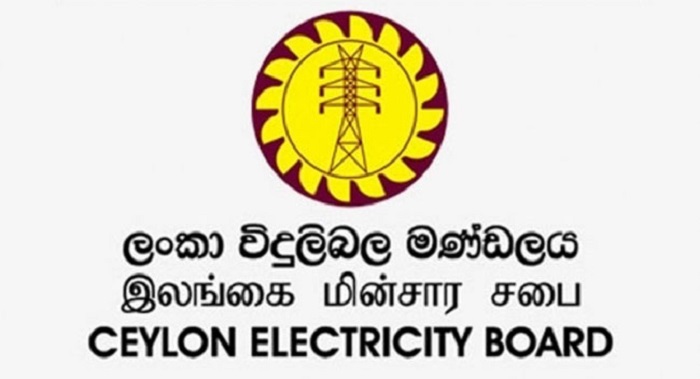
The Ceylon Electricity Board (CEB) has sought the approval of the Public Utilities Commission of Sri Lanka (PUCSL) for an 82% increase in tariffs for 2022.
PUCSL Chairman Janaka Ratnayake said the tariff hike should not exceed 57% as a concession to consumers.
Speaking to the media today, he further said 3.14 million households use less than 60 units monthly.
“There are 3.14 million of household electricity consumers who consume less than 60 units per month. It accounts for about 50% of the total household electricity consumers. Therefore, the Public Utilities Commission of Sri Lanka has recommended to the Government provide a subsidy of Rs. 65 billion to that category of consumers. By providing this subsidy, the Ceylon Electricity Board will be able to avoid a large increase in tariffs for the category that consumes less than 60 units per month,” he said.
Ratnayake further said, “According to the CEB proposal, the average monthly electricity bill for the category who consumes less than 30 units will be increased to Rs. 507. The average monthly bill for those who consume more than 30 units and less than 60 units, will increase to Rs. 1488. As a result of this subsidy, instead of such a tariff increase, the average monthly electricity bill for consumers below 30 units can be maintained at 227 rupees and the average monthly electricity bill for consumers more than 30 units less than 60 units can be maintained at 658 rupees. The PUCSL points out that although a 138 percent tariff increase has been proposed for the entire domestic sector, it should not exceed 67 percent. The CEB also has proposed to increase electricity tariffs by 45 percent for general-purpose consumers, 61 percent for industrial consumers, 43 percent for hotels, 43 percent for government agencies, and 189 percent for places of worship.”
The CEB targets to increase the average price of a unit of electricity by 82% from Rs. 18.14 to Rs. 32.48, according to the proposed tariff revision.
Explaining further Ratnayake says, “The Ceylon Electricity Board is targeting annual revenue of Rs. 512 billion through this tariff revision. However, the recommendation of the Public Utilities Commission of Sri Lanka is that the price of an average unit of electricity should not exceed Rs. 28.14. We also recommend that the Ceylon Electricity Board should reduce their operating costs by 10 percent by increasing its efficiency and use that savings to get more renewable energy for the system.”
In addition, the PUCSL has observed that the conditions imposed on the Ceylon Electricity Board with the revision of tariffs in 2014 have not yet been fulfilled. Those conditions were:
- Implementation of a proper agreement to generate and supply electricity from power plants owned by the Ceylon Electricity Board.
- Implementation of a proper agreement method for electricity transactions between the Transmission and Distribution Divisions (between licensees) of the Ceylon Electricity Board
- Introduction of a proper system for keeping separate accounts for the financial activities of the various divisions of the Ceylon Electricity Board (Generation, Transmission, and Distribution) and determining the subsidy requirements.
- Introduction of an independent audit system for the process of purchasing electricity The PUCSL points out that the cost and efficiency of the CEB could not be properly identified due to the failure of implementing the above steps.
The PUCSL also asks the CEB to accept the monthly electricity bills in dollars from the companies that earn their income in dollars.
Relevant information regarding the proposed tariff revision (Public Consultation Document) has been published on the website of the Public Utilities Commission of Sri Lanka.
The Public Utilities Commission of Sri Lanka requests all parties, including the public, to submit their views and proposals regarding the tariff revision.
Written comments can be submitted by email or fax until July 18, 2022, and details of the date and venue for the oral public consultation session will be announced in due course. The oral session will also be facilitated online (online). (NewsWire)
